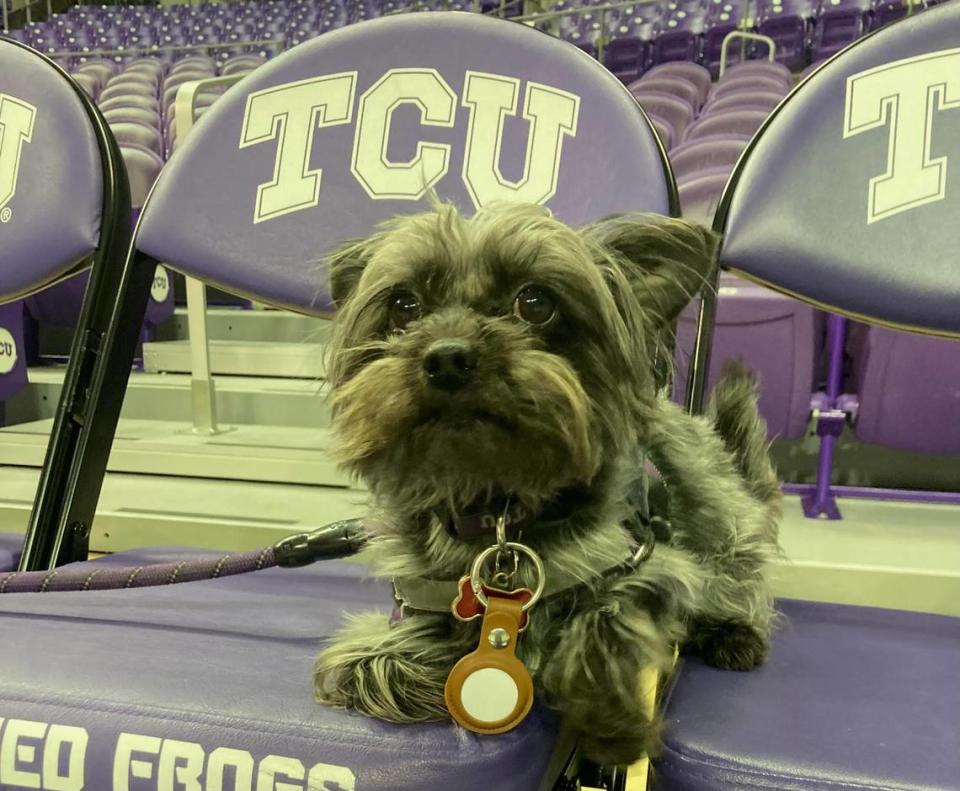TCU basketball player offers cold assessment on the reality of a college degree
Chuck O’ Bannon is 25, but he speaks with the candor of someone who is closer to 75.
The man his TCU teammates call “old head,” or “Uncle Chuck” is the sixth oldest NCAA Division I men’s basketball player. He started his basketball career at USC, in 2017.
He’s now a “super-duper-extra” senior with his undergraduate degree, and he will soon have his Master’s, too. When asked what advice he would give a college freshman student athlete, he hides nothing.
“Remember what you are here for: Basketball,” he said.
Do what?
“Basketball first, yes. That’s what got me here,” he said. “If we were to go on my ACT score and grades, I would not have made it to USC. I would not have made it to TCU. I probably would have ended up going to UNLV, maybe.”
Pretty sure that’s not going into any brochure.
“As much as education is important, education is not what got me here,” he said. “I’m not going to necessarily say to put it first. You do have to take your books seriously, but at the same time you have to be in the gym. And you can’t let your schedule overwhelm you.”
That is the truth about big time college sports, now more than ever. It’s a job, but, according to O’ Bannon, he is not an employee. The players are there to play ball. Education is second.
He takes his classes online. He lives in downtown Ft. Worth. He cooks at home. He takes his Maltese Yorki, “Hitman,” with him everywhere, including to morning practices.

An O’ Bannon will not lie about major college athletics. A McDonald’s high school All-American, he was a five-star recruit whose bloodline is comprised not of DNA but that of real basketballs. His father, Charles, was a starter for the national title-winning UCLA Bruins in 1995; his uncle, Ed, was also a starter on that team.
Charles O’ Bannon played professionally in Japan, where Chuck was born, and lasted there for 12 years until he retired at the age of 38.
Ed was a first-round NBA pick, but injuries derailed his career. He is now known famously as a lead plaintiff in a lawsuit against the NCAA that directly led to the creation of NIL, and collectives.
Chuck O’ Bannon has been around. And around. And around.
The senior forward is finally entering the final games of his college career. TCU’s NCAA Tournament begins on Friday night in Indianapolis, against Utah State. This is it.
He’s ready, and nervous. This is the life he’s known for a long time, and it will end in May when he completes his Master’s Degree in Liberal Arts. He already has an undergraduate degree, also from TCU, in general studies.
What are these degrees worth in today’s society? He’s not sure himself.
“Depending on who I talk to, some people say it means nothing,” he said. “You talk to others who said you need to get it no matter what. I am super close right now to not get it.”
A college degree is not worthless, and they’re not worth $80,000 of debt, which a full-ride student athlete does not sweat. If the player “plays the game,” they can walk out of a school with a degree or two, at zero.
What Chuck O’ Bannon really has is a PhD. In sports. In basketball. The game within the game.
He views himself as a TCU basketball player. As TCU student. Not as a TCU employee.
“I see the employees. It is different. They’re here before I am. I see what they do behind the scenes,” he said. “I see what the gym looks like the day before the games. They take care of it. They get it ready. They set it all up. Basketball is just entertainment.”
The distinction between TCU “entertainer” and TCU employee has become fishing-wire thin, and increasingly gray.
In February, the Dartmouth men’s basketball team signed a petition to be recognized as a union; the National Labor Relations Board (NLRB) ruled that the players are indeed employees of the university.
O’ Bannon is not concerning himself what that argument. He has TCU games to play, one more to TCU degree to finish, and then he hopes to follow his dad’s path and to play professionally in Japan.
He’s enjoyed his time at TCU, and says “I grew up here.” He’s just not going to lie about any of it.

